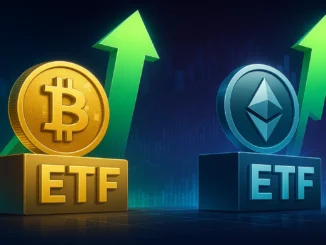
Bitcoin Holdings on Exchanges Fall to a Five-Year Low
According to new data from crypto analytics firm Santiment, the amount of Bitcoin (BTC) held on centralized exchanges has dropped to its lowest level in over five years. As of early May 2023, only 5.84% of the total Bitcoin supply remains on exchanges — the lowest since December 2017.
The trend reflects a growing preference among investors for self-custody solutions over third-party custodians, as confidence in centralized platforms continues to erode.
FTX Collapse Sparks Widespread Distrust
The dramatic collapse of crypto exchange FTX in November 2022 triggered a mass exodus of Bitcoin from custodial platforms. The event, which wiped out billions in user funds, intensified public skepticism toward centralized exchanges, driving many investors to withdraw their holdings to private cold wallets.
Santiment’s data shows that the shift began in early 2022 but accelerated sharply following the FTX implosion. The portion of BTC held on exchanges fell below 7% shortly afterward and has continued to decline since.
Binance Sees Record Withdrawals Amid Market Volatility
Binance, the world’s largest cryptocurrency exchange, has also experienced significant Bitcoin outflows in recent months. In December 2022, the company faced a surge in withdrawals after fears circulated on social media about exchange stability.
Earlier this month, more than 160,000 BTC — worth approximately $4.6 billion at the time — were withdrawn from a Binance wallet in what analysts described as the largest single transaction in the exchange’s history. While some speculated about liquidity issues, blockchain analyst Colin Wu clarified that the movement appeared to be an internal cold wallet adjustment rather than customer withdrawals.
Temporary Network Issues and Reassurances from Binance
On May 7 and 8, Binance temporarily paused Bitcoin withdrawals due to heavy network congestion, citing an unprecedented surge in transaction fees. The company resolved the issue within hours and assured users their funds were safe.
Binance CEO Changpeng Zhao (CZ) addressed concerns on social media, stating that the network’s fluctuating fees were the cause of delays. He reiterated that Binance remains financially stable and encouraged users who prefer maximum control to use self-custody options.
Growing Shift Toward Decentralization
The decline in exchange-held Bitcoin underscores a broader movement toward decentralized storage and financial independence in the crypto community. Investors increasingly favor cold wallets and non-custodial solutions, valuing security and control over convenience.
With just under 6% of Bitcoin now stored on exchanges, market analysts suggest that supply pressure could reduce sell-side liquidity — potentially influencing Bitcoin’s price dynamics in future trading cycles.
The self-custody trend highlights the maturing mindset of Bitcoin holders, who appear more committed than ever to the principles of decentralization and financial sovereignty.


